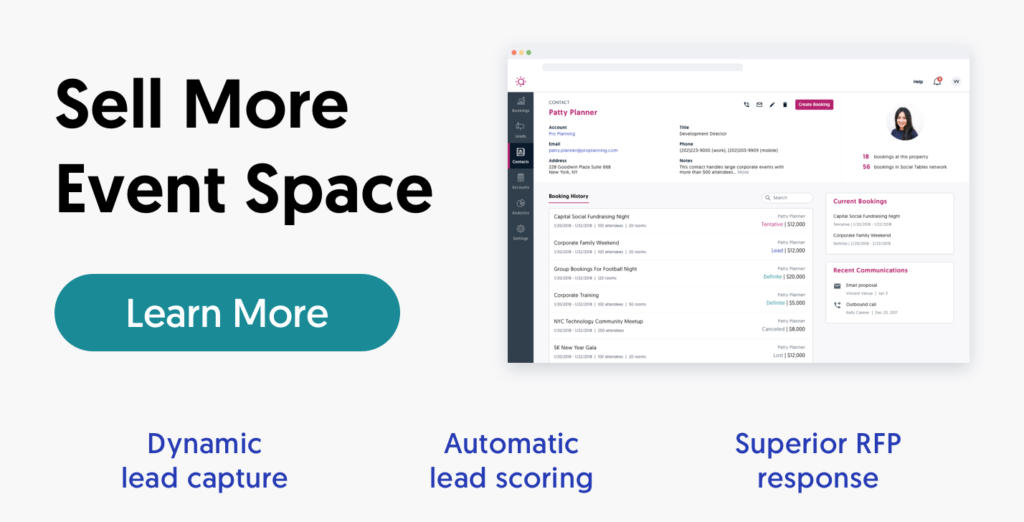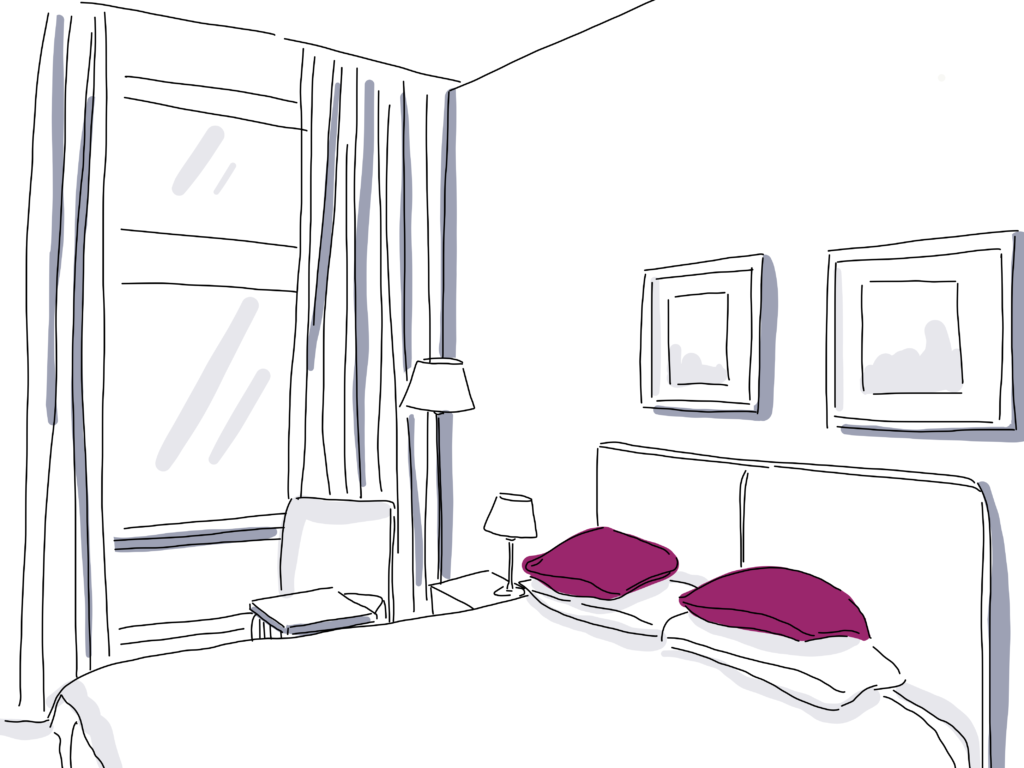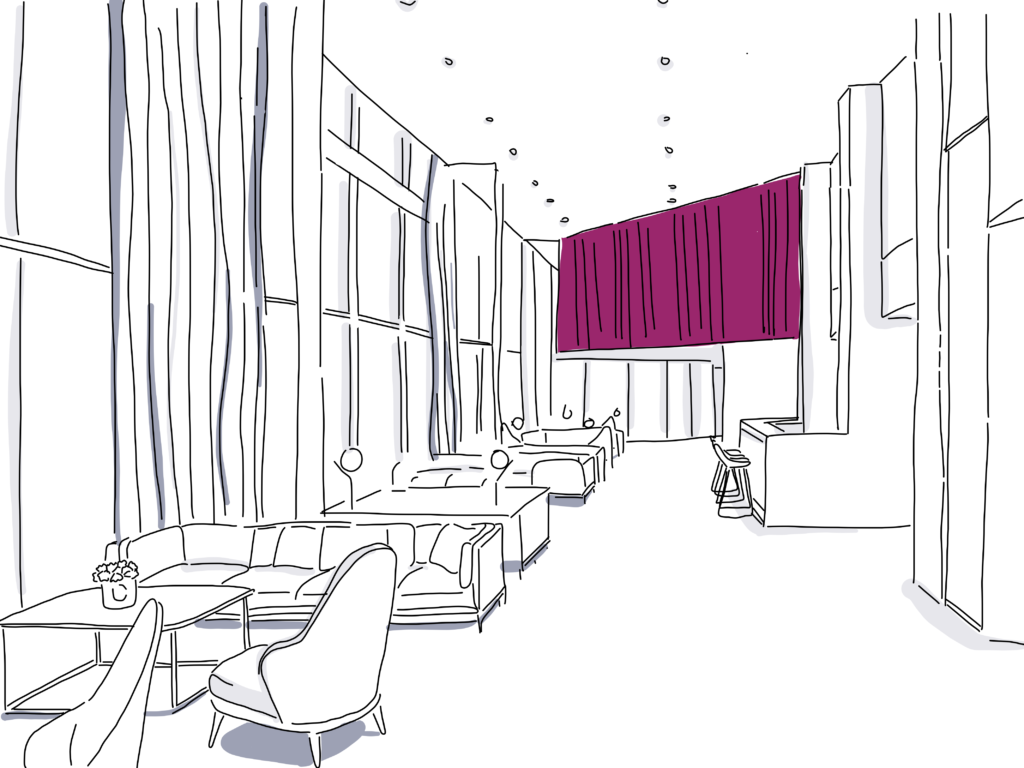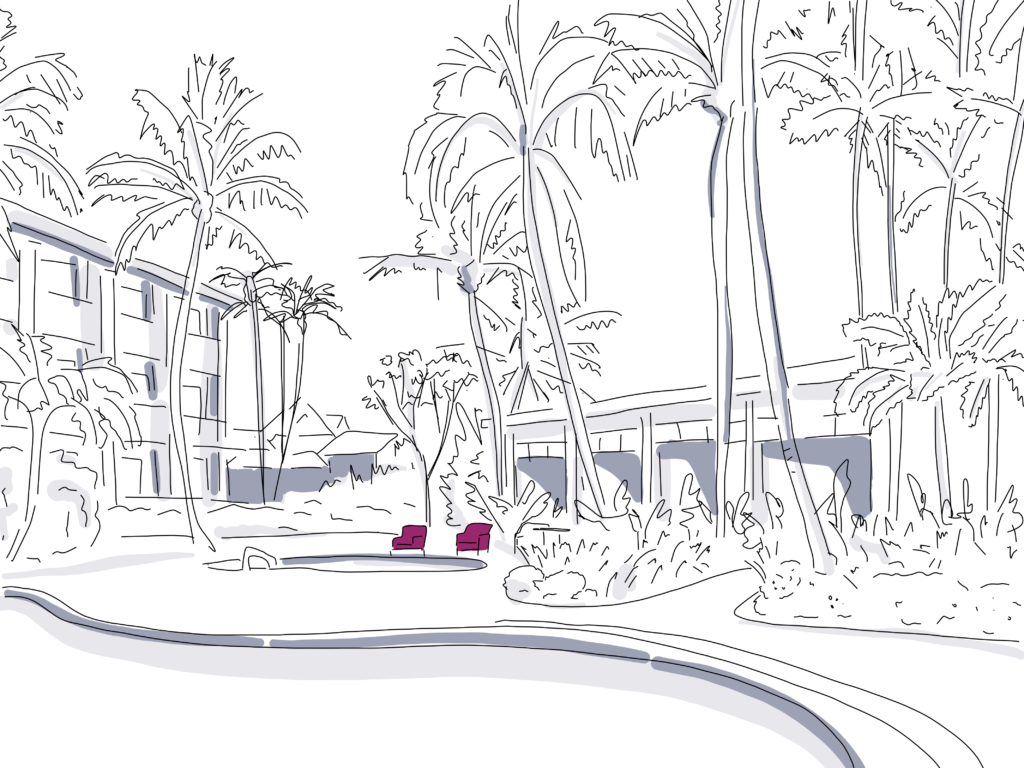
6 Online Survey Tools for Hotels to Benchmark Customer Satisfaction (& 26 Ways to Use Them!)
Hotels are nothing without their guests who visit and the planners who plan in them. Which is why it is essential for hoteliers to generate customer feedback. We have not one but six different online survey tools for hoteliers to benchmark customer satisfaction within their audience.
[Tweet “Give customers a place to voice their satisfaction via online survey tools.”]
Discover the Top 6 Online Survey Tools for Hotels:

1. Survey Monkey is a great hotel survey tool
Survey Monkey was one of the first online survey tools out there and is still a worthy contender. This online survey tool allows you to create and send mobile responsive surveys via the web, email, social media.
Hoteliers can view real-time survey analytics, and perform A/B split tests to determine which surveys are most effective. Survey Monkey even has a mobile app so that even the busy hotel manager can view survey responses on the go. While surveys may be your primary questionnaire format, you can create a long list of quizzes, polls, and a variety of other feedback forms.
2. Typeform helps with event surveys
Step one of making surveys that customers will actually fill out is to make them easy to do. Typeform does just that. It isn’t just a flat survey, but a beautiful and engaging way to gauge brand awareness and customer satisfaction.
Typeform can be integrated with over 500 software applications, meaning you can add your interactive forms just about anywhere you like. In addition to surveys, you can create visually appealing order forms, quizzes, lead generation tools, and more. All results are compiled in an easy to read analytics panel with the ability to export survey results.
[Tweet “Step one of making surveys that customers will actually fill out: make them easy to do.”]

3. Google Forms help with online surveys
Google Forms is one of our favorite intuitive (and free!) online survey tools. While it doesn’t have as many advanced design features as Typeform, it does allow you to add graphics and other personalized touches. Quickly create clean and simple multiple choice, drop down menu surveys, linear scales, check boxes, and typed response surveys.
Hoteliers can view results in Google Forms with individual or total responses, in chart form. Or for those that live for Excel, transfer survey results to Google Sheets for further analysis.
4. Qualtrics is useful for venue surveys
Qualtrics breaks their online survey tools into four main categories: customer, employee, brand, and product. Within each category, you can create unique and engaging feedback and rating surveys and polls for your hotel. This is also a great tool if you plan on doing any kind of customer research (perfect for venue marketing teams!) to measure brand sentiment and awareness.
[Tweet “Online survey tools are also great for customer reasearch to measure brand sentiment.”]

5. LimeSurvey helps with event venue surveys
LimeSurvey provides you with an impressive 28 different question types allowing you to really get creative in how you want to present your surveys and feedback forms. While many of these online survey tools can accommodate a handful of popular languages, LimeSurvey designs surveys in over 80 languages. This means you can boost survey response from your international guests. This is an open source software has some free options, and affordable subscriptions for full access and high-volume use.

6. PollDaddy makes event surveying easy
PollDaddy is another strong contender for creating surveys, polls, ratings, and quizzes. Creating polls is fast and easy, and you can personalize each of your survey with digital media such as graphics, logo, videos, images, and other branded or relevant content. Not as visually appealing as some of the options above, but delivers clean and crisp simple surveys.
As you can see your hotel has many online survey tools to choose from. Most of the tools above offer free limited plans, but Google Forms is the only one that is entirely free for their all-access tools. This feedback can be related to their latest reservation, dining experience, spa service, or rented event space.
Explore 26 Ways Hotels Should Use Online Survey Tools:
Once you settle on a great online survey tool for your hotel, these tips will help you get the most out of your investment.

1. Customize the guest experience with pre check-in surveys.
Include this type of survey in your booking confirmation email. Focus pre arrival questionnaires on the guest’s expectations and needs. For example, if they have any dietary restrictions you can highlight the best room service menu items for them in their welcome package.
2. Get feedback on user experience on your booking site.
Add a small pop-up box with a single question about your website. If you’d like to measure their perception of your brand (like Paytm does), ask them (on a rated scale of 1 to 10) whether or not they’re likely to refer your hotel to a friend. If they select a value higher than 5, you can even reward them with a custom referral offer and link to share via email or social media.
3. Set up auto-responses for certain survey result triggers.
Some online survey tools for hotels allow users to flag negative language and low rating responses. Communicate these alerts to your customer service team so they can immediately follow up. And take some cues from these helpful post-survey follow-up ideas.
4. Automatically send additional survey questions based on guest profile information.
Structure these questions to fit your target market. For example, if you’re aiming to increase bookings from European audiences, ask them what country they’re from. Then follow up by asking for more details regarding their personal preferences. You’ll learn more about each customer segment and provide better service at the same time.
5. Improve guest experience during their stay with on-site surveys.
Post stay questionnaires miss valuable opportunity to correct issues before or immediately after they come up. Instead, try getting feedback while they’re still checked in. Ask how their stay is going, if there’s anything about their room that could be improved, or if they have any interest in a short list of targeted upsell or add-on experiences.
6. Translate your surveys into other languages to help non English speaking guests.
Most hotels cater to international audiences, which is why this step is so essential. Here’s a great guide for creating an effective multilingual survey that accounts for both translation and cultural differences.
7. Create guest survey templates for every stage of the customer relationship.
At a minimum, all hotels should have online survey templates for before, during, and after a guest’s stay. Before the guest’s stay hotels should use surveys to promote relevant upsell opportunities and help personalize their onsite experience.
During the stay, questions should cater towards their current experience and address any needs that have come up since check in. After they’ve left, follow up surveys should inquire about their overall satisfaction, provide referral incentives, and strategically encourage future bookings.
Tools like SurveyMonkey also offer different categories of templates which include customer service team feedback as well as room cleanliness feedback. Pick the templates that make the most sense for your sales or marketing goals and customize them as needed.
8. Offer a mobile option for surveys.
Whether it’s through an app or a website optimized for mobile, give your guests the option to choose the device they’re most comfortable with.
9. Add lobby kiosks that encourage survey participation.
If you already offer self check-in kiosks, be sure to insert one quick survey questions into the process. Asking no more than one to two simple questions about amenity preferences, parking passes, or additional room upgrades will keep the process efficient and fast.
10. Directly share positive survey quotes to your social media channels.
Most online survey tools will allow you to directly link your accounts and send the post directly in the program. You can also use these quotes on your website or in single page case studies. By the way, here are some other great tips for turning customer feedback into engaging social media posts.

11. Use simple 1-3 questions surveys to gauge big picture opinions of your hotel.
If you’re want to gauge brand perception, ask questions like which option from the drop down menu best describes your hotel. Or, how does your hotel make your guest feel? Experts say to combine a mix of both open-ended, list and scale questions that address both emotional and logical reactions.
12. Prioritize longer, more complex surveys when you want to tackle a specific marketing or sales goal.
Hotel market research questions will be different from your usual customer service focused surveys. Use this type of survey to learn more about target demographics and market competitiveness. You can also give guests more space to provide detailed suggestions for improvements.
13. Have a system for gathering, organizing, and storing guest feedback from a variety of sources.
If you’re collecting survey responses from a few different sources, you should have a central information management system in place. Most online survey tools will offer dashboards for you to do this in.
But just in case yours doesn’t, use a free document storage site (like Google Drive or DropBox). First, include relevant keywords (like pre arrival, restaurant, customer service, etc.) in descriptions or titles to make your PDFs searchable. Then, organize each piece of feedback by date, survey template type, and target market.
14. Make sure all your surveys match your hotel branding.
Customizable templates make your job easy with space for logos, brand color specifications, and font options. Remember to also use your chosen brand voice when writing your questions and multiple choice answers. And last but not least, customize your surveys with specific page web URLs that make it match your SEO practices.
15. At a minimum, hotels should promote survey participation through email, social media, and their website.
For example, you can create a survey campaign that uses Instagram’s poll feature in Stories, an embedded form on your booking site, and in your email newsletter all at the same time.
16. Select a hotel online survey tool that has offline capabilities.
Offline survey options are an absolute must for properties with less than stellar WiFi. You can also use offline survey tools for slightly off site marketing strategies. Like street teams who ask passerby about their opinions regarding recent hotel construction and appearance upgrades. Or get immediate feedback on your VIP guests’ experiences with valet parking and hotel transportation.
17. After a survey is completed, redirect participants to a targeted landing page.
Continue to nurture leads with these great thank you page examples.
18. Get creative with your multiple choice answers.
For example, it might make sense for your band voice to use a smiley face, neutral face, and frowny face as your feedback tool. You can also mix it up with rating scales, emojis, and GIF options.
19. Integrate your hotel online survey tool with your CRM.
Train your front desk staff to look over specific guest feedback from surveys in your CRM prior to their check-in. That way they can anticipate needs and make sure this stay is better than the last. For example, if the guest hated their shower water pressure in the last room, offer them a complimentary room upgrade that has a better bathroom this time around. Check out Social Tables group CRM to get access to easy-to-use tools.
20. Limit your feedback channels to one or two sources.
Over time, you may find that customers mostly respond to your hotel guest surveys through just a few of your possible avenues. If that’s the case, focus your efforts and promote just one or two of those channels to maximize participation.

21. Reward survey responders with small hotel credits or loyalty program points.
You can also persuade them with spa amenities passes, free appetizers at your hotel’s restaurant, or a unique ride share app discount link.
22. Compare guest survey results to your hotel’s online reputation.
If the feedback doesn’t match up, compare and contrast what guests are saying. Or, if you notice complaints around a certain area of your business, make sure you ask questions about that specific issue in your next round of surveys.
23. Embed single questions surveys into emails.
It’s quick and painless. Email recipients can submit a response without every leaving their account. Use this space for questions about overall satisfaction with the booking process, your hotel website, or their recent stay.
24. Optimize forms to look great on any device or screen size.
Most online survey tools should already offer this feature. But you can take it a step further and design forms that make surveys look like quizzes, use colorful buttons, and have intriguing titles.
25. Use Yelp’s Ask the Community section to meet guests where they already spend time reviewing hotels online.
Yes, you can always answer questions that other guests pose. But you can also use a personal Yelp account to submit questions to this part of your page. Just make sure you limit your contributions to the topics you consistently receive positive feedback on. For example, guests may rave about your pool. So ask the community what they think of this hotel area and let them promote that property highlight for you.
26. Collect reviews from one of TripAdvisor’s many hotel online survey tools.
TripAdvisor works with a variety of survey, booking, and property management systems to bring hotels quality guest feedback. Learn more about their many options here.

Now You’re Ready to Improve Event Customer Satisfaction with Online Survey Tools!
There’s no better time than the present to get the important customer satisfaction data that you need to make improvements. Start testing different tools to see which is the best fit for your hotel.
Which online survey tools have you tried that worked well? Give us a shout on LinkedIn and let us know.
Up next, learn how to reduce hotel operating costs while maintaining customer service, and secrets to delivering unexpected personalization for groups.

